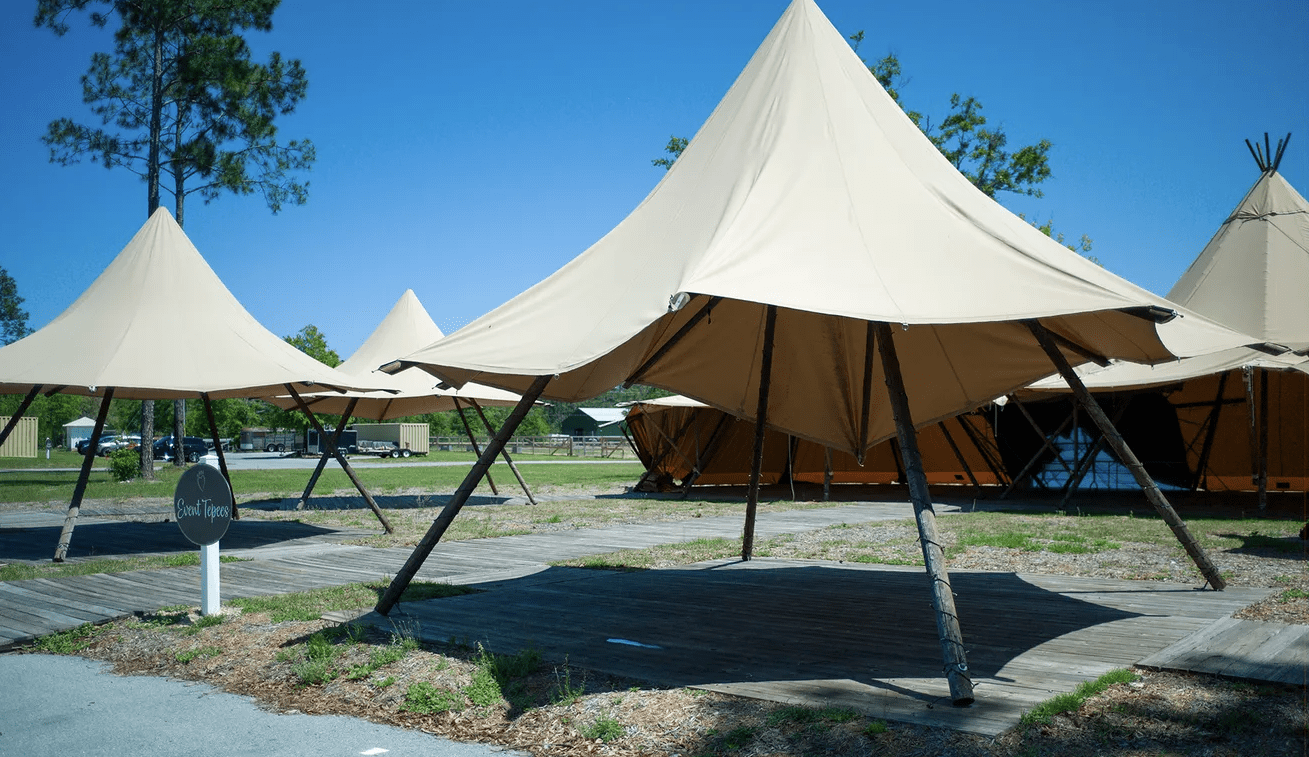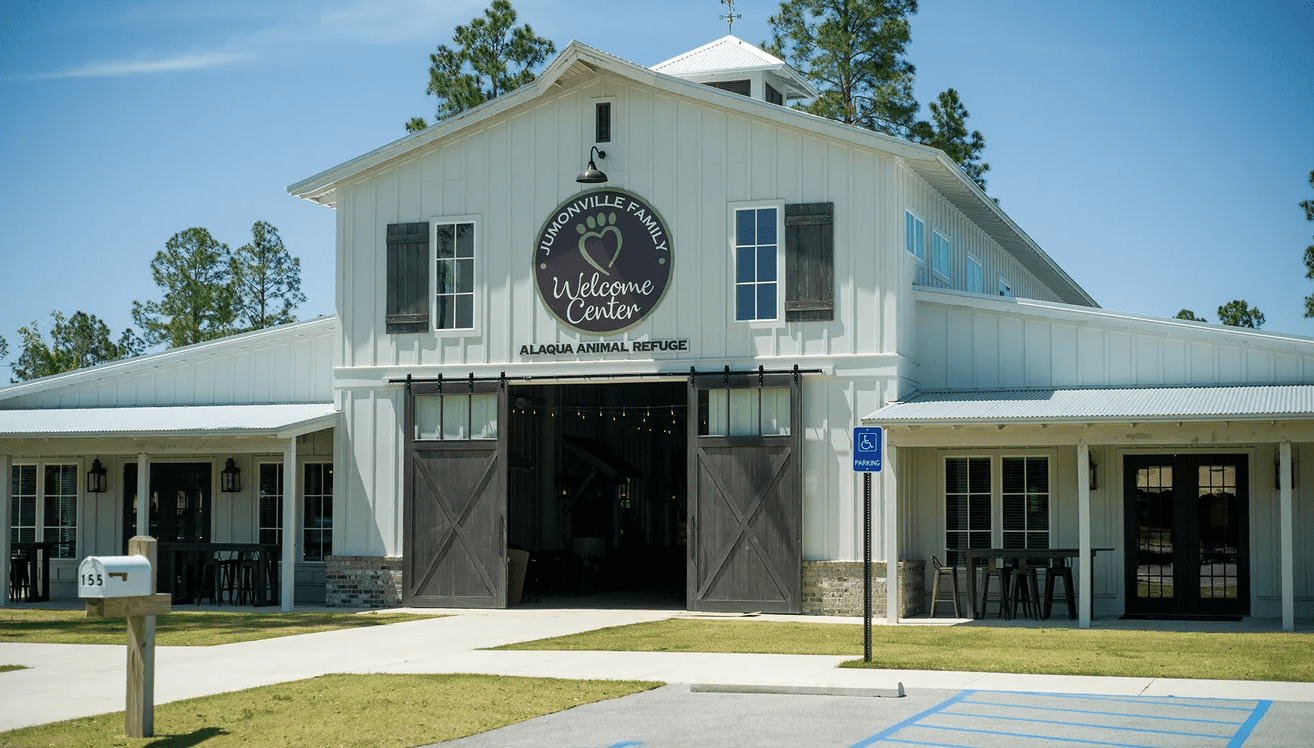
Haven for Rescued Animals:
New Alaqua Refuge has Village for Cats, Wildlife Rehab Center
by Jim Thompson
Northwest Florida Daily News, Ft. Walton Beach, FL
FREEPORT, May 2, 2022 — Theologians may argue over whether animals go to heaven, but one thing beyond dispute is that the new Alaqua Animal Refuge is aspiring to be a heaven — or, at the very least, an incomparable haven — on earth for rescued animals.
That much and more is clear from just a walk around the refuge’s new 100-acre donated property on State Road 20 east of Freeport. And it’s also evident in the voice of founder and president Laurie Hood, who says, “I see a living soul in every animal, and feel compelled to be its voice.”
The results of that approach are readily seen at the refuge. As just one example, a dog spending time at the facility’s veterinary clinic after being shot — an injury that, despite the clinic’s efforts, left the animal walking on the long section of its rear legs rather than just its paws — circled around a recent group of visitors, warily at first, but quickly becoming curious and friendly.
Located just a short distance from the refuge’s former site, the new home of Alaqua Animal Refuge boasts an array of specialized housing and other facilities that create the impression of a village specially created for mankind’s furred and feathered friends.
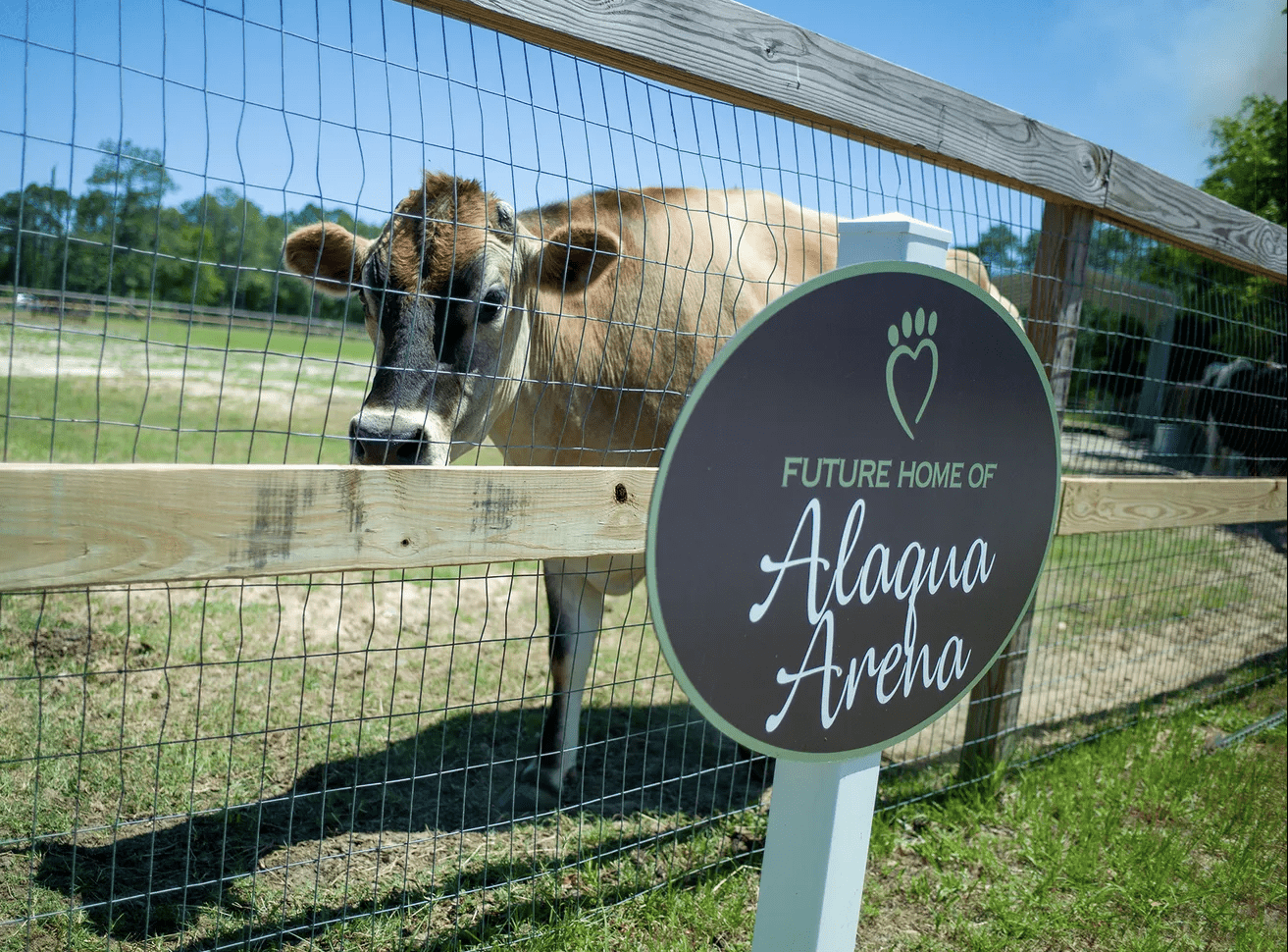
The facility’s former home, hit by flooding during Hurricane Sally two years ago, is still housing most of the refuge’s animals as development of the first phase of the new refuge continues.
But the new facility is coming alive, with dogs, cats and farmyard animals already taking up residence while waiting for new permanent homes. There is, for instance, a set of spacious kennels at the facility’s dog adoption center designed specifically for dogs to be able to socialize with each other or to spend time by themselves. Nearby are shipping containers, modified with broad expanses of windows and other improvements, for puppies.
A little farther away on the grounds there are places for farm animals, including a place that one day will allow people to see and learn about their barnyard friends and exotic animals up close. There also is an almost literal village for cats, next door to a veterinary clinic staffed six days per week that can see anywhere from three to 16 surgeries a day.
And in addition to all of that, the Alaqua Animal Refuge includes a 50-acre section that will be home to all of the rescued wildlife that can’t be rehabilitated sufficiently to be returned to their natural habitat.
Alaqua Animal Refuge also includes amenities for its human visitors, including an events area that already has hosted farmers’ markets and other activities, a large welcome center, and in the future, plans for a chapel.
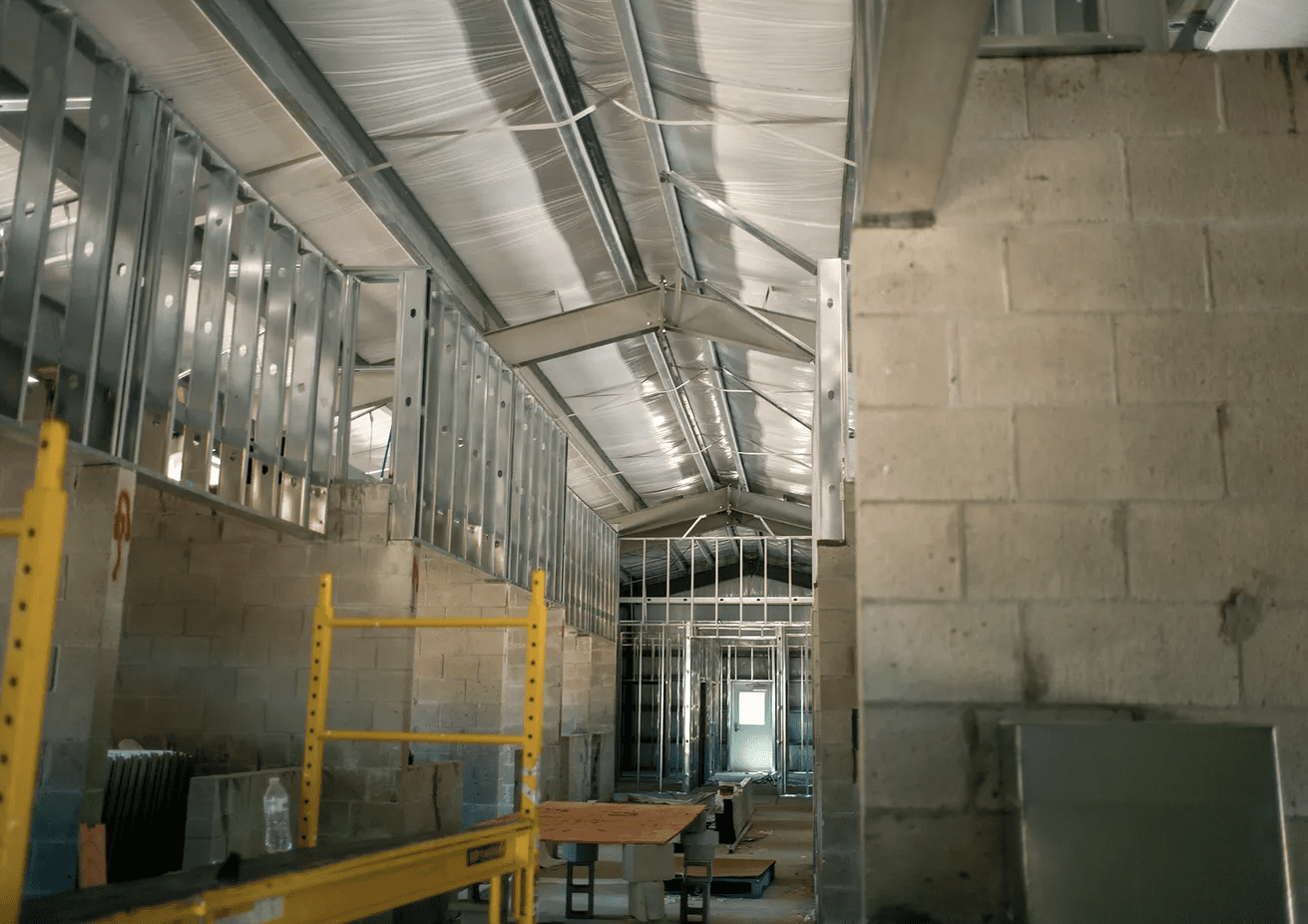
What the refuge has become is all the more remarkable, not just for its recent travails — “We’ve come through hurricanes and floods,” Hood said at a recent event kicking off a capital campaign seeking donations for work at the facility — but for its beginnings, as well.
Fifteen years ago, after learning that Walton County euthanized animals it picked up if they weren’t claimed after just seven days — and wouldn’t release them to her unless she had a recognized animal rescue organization — Hood immediately established Alaqua Animal Refuge as a nonprofit entity operating on the 10 acres of her home.
Just like that, nearly 40 dogs were rescued. And since then, Alaqua has found homes for tens of thousands of pets and barnyard animals.
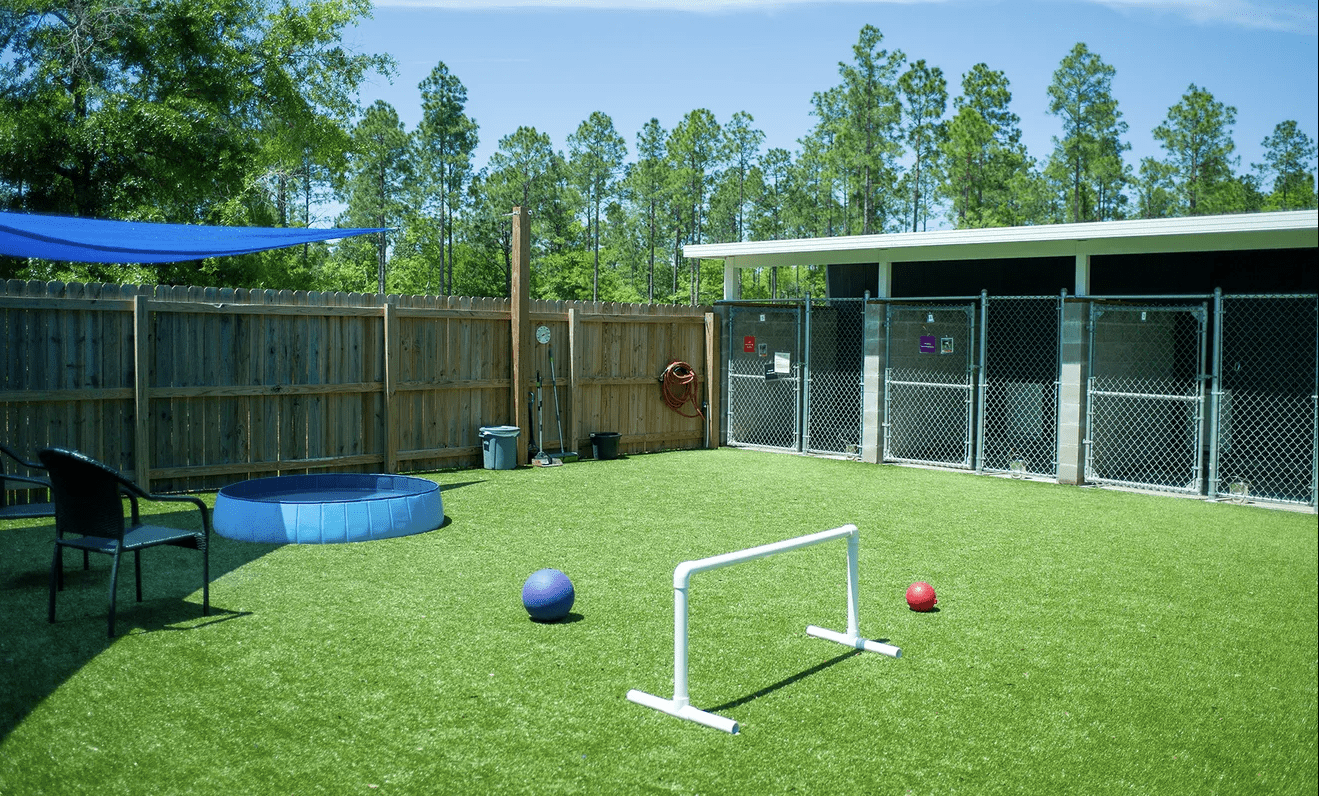
The years since 2007 have been “a whirlwind” for her and her husband Taylor, Hood said during the recent capital campaign kickoff event seeking donations for its ongoing development and continuing work.
“Everything that’s around me was once a dream,” she added as she went on to note that the refuge, which operates with 300 volunteers, today has its animal feed delivered in 18-wheel trucks and performs thousands of dollars in surgeries at its veterinary clinic.
Keeping the facility in operation requires $250,000 per month, Hood said. It receives no county, state or federal funding, meaning that its operating costs are covered by individual and corporate donations, grants from various organizations and with revenue from fundraisers.
Anyone interested in donating to Alaqua Animal Refuge can do so by visiting https://bit.ly/CC–2022 or by calling 850-880-6399 or sending a check to Alaqua Animal Refuge Inc.,155 Dugas Way, Freeport, FL 32439.
If they like, donors can specify where they want their money to be used, Hood said. “I want everyone who gives to know what they’re giving to.”
Beyond the day-to-day needs, the capital campaign seeks to raise the $15 million that Hood estimates the Alaqua Animal Refuge will need to fulfill the complete vision for the 100-acre tract. As of now, the refuge has raised $6 million, she said.
Hood suggests that anyone or any entity looking to make a contribution can contact the refuge by phone to set up a tour.
“It’s one thing to read about it or hear about it,” Hood said, but by actually visiting the grounds “you can feel what we’re doing.”
A case in point was the recent campaign kickoff, in which dozens of people got guided group tours and were visibly impressed with the progress and vision for the 100-acre tract.
“We were at 10 acres before, and just look at what we’ve done,” Hood said.
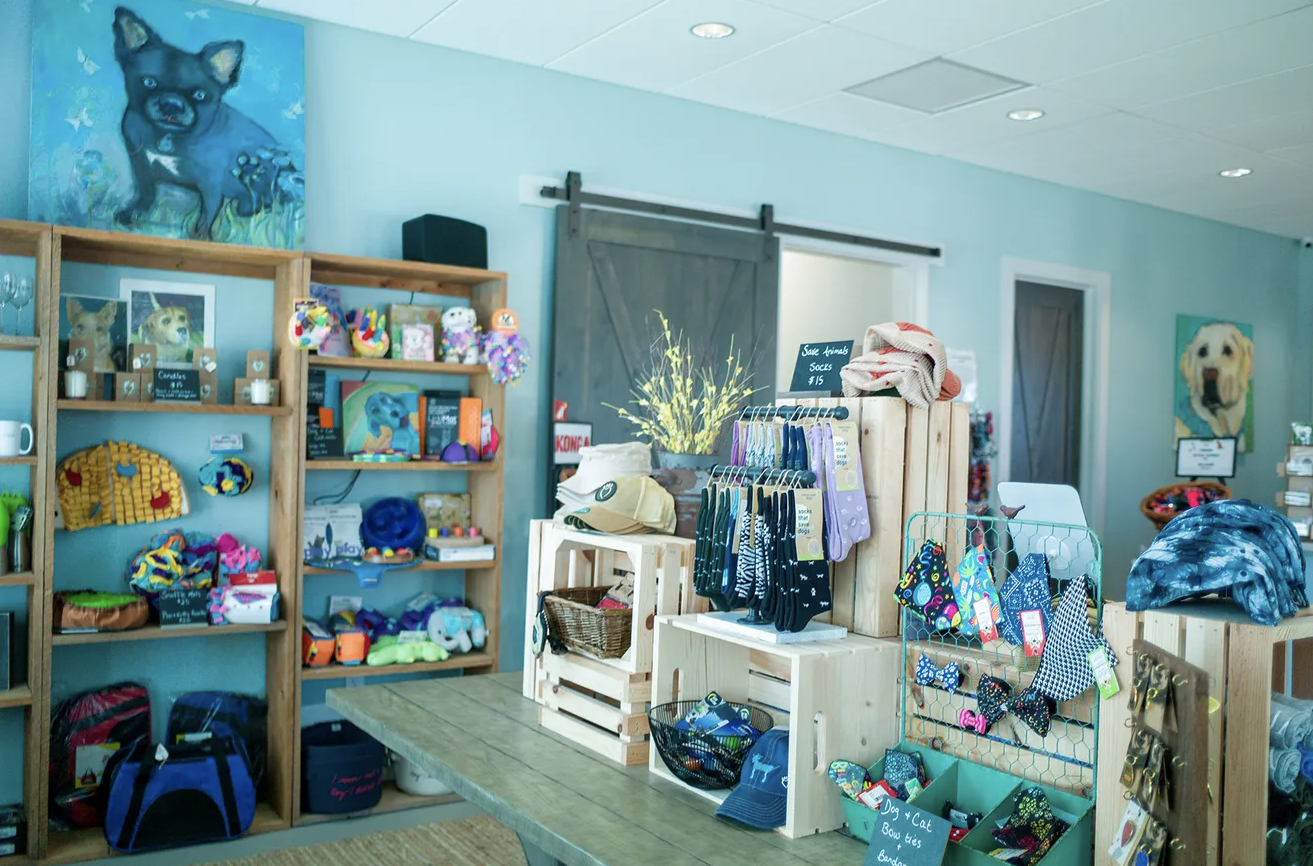
Donations to the capital campaign include opportunities for donors to have facilities or equipment named for them, making them a permanent part of the Alaqua Animal Refuge’s efforts.
“Our facility is going to be there for generations to come,” said Hood, who added that once something on the grounds is named “it stays named.”
Looking back on the refuge’s beginnings, Hood said she had no vision that it would become what it is today: the premier animal refuge in the southeastern United States.
“I wish I could say I was that much of a visionary,” Hood said. “At the time, I just knew that we had a bad problem, that animals were dying and we needed to do something about it.”
Going forward, Alaqua Animal Refuge will blaze trails in animal rehabilitation, as a wildlife sanctuary and in wildlife and land conservation, according to its “Second Chances Start Here” capital campaign. In large part, that vision is a result of Hood looking toward a more holistic approach to meet the needs of wildlife and other animals and in the ways they interface with humans.
“After about the fifth year (of operating Alaqua) I realized that we could always fill up whatever acreage we have” with rescued animals, she said. Animal rescue facilities “are great, we need them,” she continued. “We need them at all kinds of levels.”
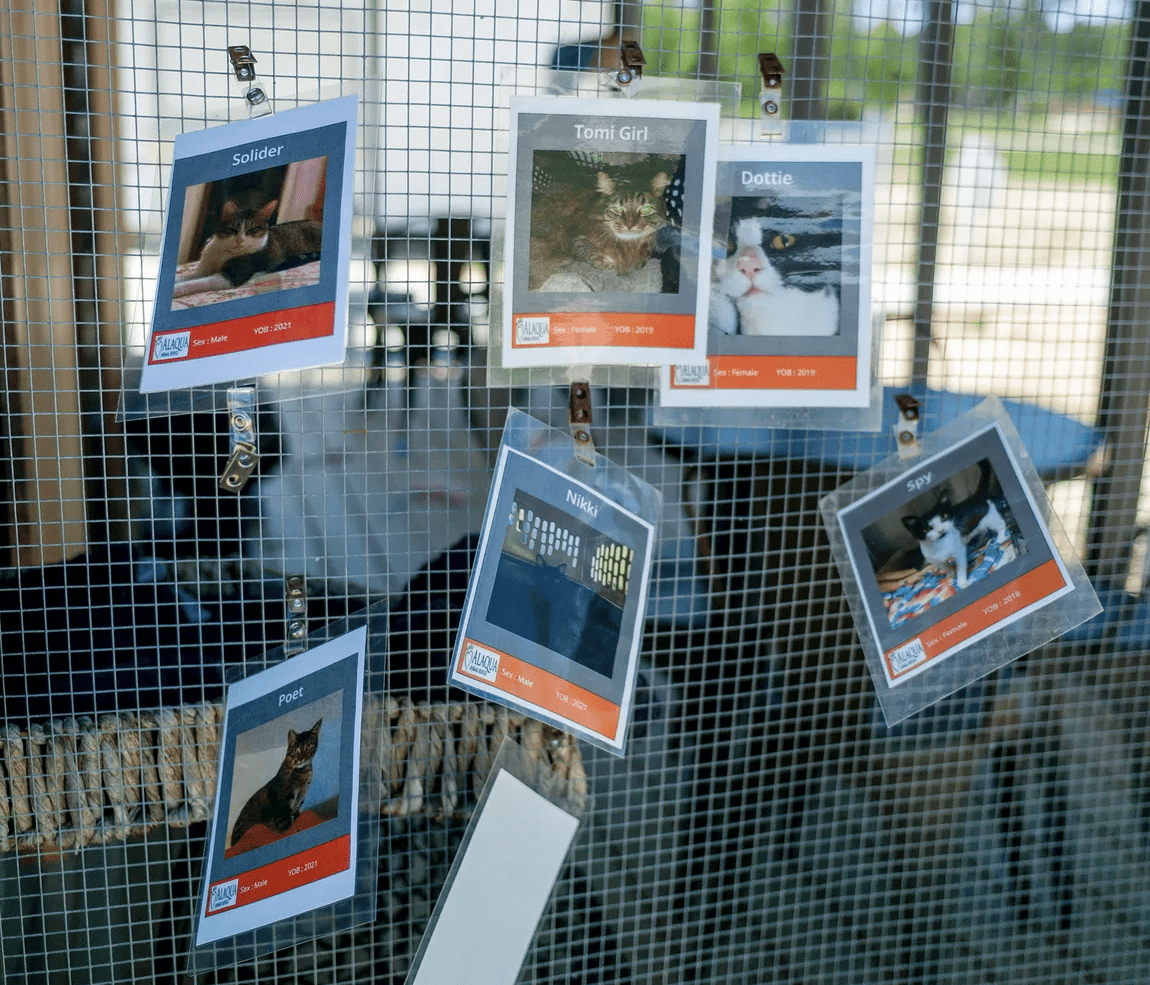
Alaqua’s trajectory, though, has been a little different in that it has become a recognized leader in the animal welfare field. “We try to to the right thing,” she said, “and people recognized that” to the point that “if there was an animal issue, everybody from your neighbors to the state’s attorney’s office” grew to see the refuge as a wide-ranging resource.
Hood said it also will continue working in the area of the interface between humans and animals. Many times, she said the people who come to rescue animals are themselves dealing with trauma, whether the death of a spouse, the suicide of a family member or other serious personal issues.
“When that light bulb went off in my head, I thought, ‘We can do so much good for so many people.’ “
One goal of using the refuge as an opportunity for people to learn more about and to experience animals up close is to generate kindness, Hood said.
“If you can teach someone to be kind to an animal, it certainly spills over into other living things.”
. . . . . . . . . . . . . . . . . . . . . . . . . . . . . . . . . . . . . . . . . . . . . . . . . . . . . . . . . . . . . . . . . . . . .
